Since its inception in 1998, the Peoples Democratic Party (PDP) has had 12 chairmen, both in acting and substantive capacity.
Ahead of the convention to produce its next chairman, here is a profile of all the men who have led the party, which formed government at the centre for 16 years.
Politics is quite an interesting game, some of these individuals are currently holding top positions in the ruling All Progressives Congress (APC).
ALEX EKWUEME
Advertisement
First elected vice-president of Nigeria, first chairman of the board of trustees of the PDP, first acting chairman of the largest political party in West Africa, Ekwueme is a man of many firsts.
A graduate of the University of Washington, with other degrees from the United Kingdom, Ekwueme hails from Oko in Anambra state.
For many years, he served on the board of the Anambra State Housing Development Authority. He also participated in the Nigeria National Constitutional Conference (NCC) in Abuja, where he served on the committee on the structure and framework of the constitution.
Advertisement
Ekwueme mobilised 34 eminent Nigerians against the military regime of Sani Abacha.
Still an active member of the PDP, his tenure as the party’s chairman did not last a year.
SOLOMON LAR
Lar was a founding member of the PDP. He was the party’s chairman between 1998 and 1999. A former governor of Plateau state, his tenure ended during the 1983 coup that brought the then Gen. Muhammadu Buhari into power.
Advertisement
He was a member of the first national parliament when Nigeria gained independence in 1960. Lar held various offices over a period of 50 years. He was parliamentary secretary to Prime Minister Abubakar Tafawa Balewa, and he also served as junior minister in the ministry of establishments.
He died in October 2013.
BARNABAS GEMADE
Gemade is currently a senator in the 8th national assembly. The two-term lawmaker represents Benue north east senatorial district. Now a member of the All Progressives Congress (APC), Gemade left the former ruling party shortly before the last general election.
Advertisement
The senatorial ambition of Gabriel Suswam, then the governor of Benue, threatened Gemade’s return to the senate; and since there can be but one senator from a zone, he defected to the APC, where he picked the ticket without much hassles.
Gemade subsequently defeated Suswam in the election, polling 140,715 votes ahead of the former governor’s 118,608 votes.
Advertisement
Gemade was elected chairman at the first PDP national convention. It was a fierce contest between him and Sunday Awoniyi, a founding father of the party.
Former President Olusegun Obasanjo was believed to have supported the Tiv chief, but the ex-president couldn’t help him secure a fresh term of two years, as he lost to Audu Ogbeh who also hails from Benue.
Advertisement
Gemade served as the chief executive officer of Benue Cement Company (BCC) between 1985 and 1992. Two years later, he was appointed a member of the constitutional conference organised by the military regime of Sani Abacha.
In 2003, he contested in the presidential primary, but lost to Obasanjo, who ended up being re-elected. Few months after, he was expelled from the PDP on the account of alleged anti-party activities, even though some people were of the view that the party hierarchy has already decided to hit him for other reasons, particularly for supporting a candidate other than George Akume, former Benue governor, in the gubernatorial election.
Advertisement
AUDU OGBEH
The longest-serving chairman of the PDP is currently the minister of agriculture. Ogbeh presided over the party between 2001 and 2005.
A lecturer, poet, an orator, Ogbeh has written five plays, including three published works. He graduated from the Ahmadu Bello University, Zaria and obtained further degrees at the University of Toulouse, France.
In 1979, he was elected as a member of the Benue state house of assembly, and he ended up being the deputy speaker.
Three years after his experience as a parliamentarian, former President Shehu Shagari appointed him as the minister of communications, and he also served as minister of steel development. His political appointment in that dispensation ended with the coup that brought Buhari into power.
Coincidentally, he returned as a minister when Buhari became a democratic leader.
His tenure as chairman of the PDP ended on a controversial note. Rumours had it that Obasanjo placed a gun on his head and ordered him to write his resignation letter. Ogbeh did not confirm or deny the allegation then, and 14 years later when he appeared before the senate for ministerial screening.
Emmanuel Bwacha, a PDP senator from Taraba state, had put the question to him directly: “Were you asked to resign at gunpoint?”
The agric minister smiled, but did not utter a word.
Back then, he had written a scorching letter to Obasanjo on his handling of the crisis involving Chris Ngige, who was Anambra state governor, and now Ogbeh’s counterpart in the ministry of labour.
The ex-president allegedly took the letter in bad faith and refused to accept his subsequent apology.
News had it that after a dinner at Ogbeh’s residence, the ex-president invited him over to the presidential villa where he was asked to relinquish his position.
AHMADU ALI
Ali, a retired colonel and also an ally of Obasanjo, took over from Ogbeh. An indigene of Idah in Kogi state, Ali is the first director-general of the National Youth Service Corps (NYSC).
He also served as minister of education. Ali was the deputy director of Army Medical Services and chief consulting physician of the Military Hospital in Kaduna.
Ali was director-general of the Goodluck Jonathan campaign organisation in 2015. He toured the length and breadth of the country with the immediate past president in the electioneering period.
Till date, he remains a strong member of the party.
VINCENT OGBULAFOR
Ogbulafor succeeded Ali. He chaired the party between 2008 and 2010. The native of Olokoro in Umuahia South local government area of Abia state served as national secretary of the party before becoming chairman.
He bowed out of office ignominiously, as charges of corruption were filed against him. He had no option but to step down.
When Jonathan picked his nomination form for a second term, Ogbulafor was 100 per cent sure that Jonathan would win.
He went as far as boasting that the PDP would rule Nigeria for 60 years, a statement that generated controversy.
“The ruling Peoples Democratic Party, which has been in charge of Nigeria’s affairs since 1999, will be in power till 2059 AD,” he had said. “There was a time it seemed that PDP was going to crumble but you can see that the party is getting stronger now.”
Jonathan had not even left office when Ogbulafor visited the headquarters of the APC amid rumours that he wanted to join the party. So much for his 60 years dream!
OKWESILEZE NWODO
Nwodo, a former governor of Enugu state, is a medical doctor. He took over the reins of the party from Ogbulafor, but could not complete his tenure as he was also “consumed” by crisis.
Nwodo studied medicine at the University of Nigeria, Nsukka, and later served as a house officer at the University of Nigeria Teaching Hospital in Enugu and at the Military Hospital in Jos.
He continued his studies at the Royal College of Surgeons, London and the Belgrade Medical School, Yugoslavia, gaining an MB.BS in Medicine and Surgery. He worked as a pediatric surgeon in Yugoslavia and then in Birmingham, England, before returning to Nigeria and taking a post as medical doctor at the Ukehe Medical Centre and Maternity.
His problem as PDP chairman started after he fell out with Sullivan Chime, a former governor of the state. The ICPC probed him for alleged corruption and an Enugu state high court removed and prevented him from participating in the 2011 convention.
He later stormed the convention venue and tried to take over midway into the speech delivered by his deputy.
KAWU BARAJE
Baraje is an indigene of Kwara state. He obtained a bachelor’s degree from the Ahmadu Bello Univeristy, Zaria in 1982.
He also worked with the Kwara state government, as a teacher, education administrator, public administrator and rose to the rank of permanent secretary before retiring.
He also served as the chairman of the board of trustees of the Nigeria Railway Corporation.
Baraje led the five governors who staged a walkout at the PDP convention of 2013. He later became the chairman of the new PDP, which was formed ahead of their defection to the APC.
A close associate of Senate President Bukola Saraki, Baraje has accompanied the number three citizen to the Code of Conduct Tribunal (CCT) on all the occasion that Saraki has gone there over his alleged false declaration of assets trial.
BAMANGA TUKUR
Tukur, an influential businessman and technocrat, led the PDP between 2012 and 2014. Like his predecessors, his tenure was also stormy.
He served as minister for industries under Abacha, and retained his position as the president of the Africa Business Roundtable.
A former governor of the then Gongola state, now Adamawa and Taraba states, Tukur also worked as the general manager of the Nigerian Ports Authority, a position he held until 1982 when he was elected governor.
Ten years after, Tukur took a bold leap by seeking the presidential ticket of the National Republican Convention (NRC). That move did not pay off, as Bashir Tofa, a Kano businessman eventually picked the ticket.
Jonathan had to bow to the wish of some influential personalities, including governors, by allowing Tukur step aside.
He had a good relationship with the president or so it appeared. Shortly after Tukur’s resignation, Jonathan attended a PDP function where he was present, and the immediate past president did not mince words in extolling him.
Jonathan ended up by saying he was going to give Tukur a very powerful assignment, and true to his words, Tukur was named chairman of Nigeria Railway Corporation.
ADAMU MU’AZU
Dubbed ‘game changer’, the fortunes of the PDP changed under Mu’azu, two-time governor of Bauchi state.
When he took over the reins of leadership, PDP had almost 30 states, but by the time he was leaving not even 15 states were under the party’s control.
PDP, which held power for 16 years became an opposition party under him. It would be unfair to single out Mu’azu for the party’s woes, imposition of candidates, impunity, zoning, the party counted many factors that could have led to their shocking defeat.
Though, the worst happened under him, Mu’azu would not quit easily, a tradition, which not just PDP chairmen have become popular for, but Nigerian politicians in general.
“For those who are wishing that I will either decamp or resign, I advice you to kindly stop wishful thinking. We have a party to lead,” read a tweet, which he endorsed exactly 15 days before he bowed out of office.
“If I had my way, everyone in my state “Bauchi” would have voted for President Jonathan but it’s the people that vote not me.”
Mu’azu eventually left just nine days to the end of Jonathan’s tenure. Rumours went round that he betrayed Jonathan in the election. The former president apparently believed this, from the utterances he made subsequently.
The doubt, which people had about Mu’azu reached its height when Jonathan’s convoy was attacked in Bauchi. To save his name, Mu’azu said his opponents were behind the incident, which left at least six officials of the Department of State Services (DSS), injured.
He even pointed accusing fingers at Bala Mohammed, former FCT minister, who was one of his strong opponents.
Born in Boto, Tafawa Balewa local government area of Bauchi, he attended the School of Basic Studies at Ahmadu Bello University in Zaria and later received a Bachelor of Science degree in Quantity Surveying.
He latter bagged a master’s in construction management from his alma mater, and a second master’s from Birmingham University in the United Kingdom.
At the end of his governorship tenure in 2007, he ran for a senate seat, but was defeated.
HARILU BELLO
A former minister of defence and one-time comptroller general of customs, stepped into office after the exit of Mu’azu.
He was trained in veterinary medicine. He held various administrative positions under the military governments before 1999. He was Minister of Communications from June 2001 to May 2003. After he left office he was indicted in a bribery scandal involving the German telecom company Siemens AG. He was Defense Minister from July 2011 until June 2012.
He was appointed the acting National Chairman of the People’s Democratic Party of Nigeria on 25 May 2015.
UCHE SECONDUS
Secondus, who was Mu’azu’s deputy, stepped into the office of the chairman in acting capacity after Bello. A native of Andoni local government, a riverine community in Rivers, Secondus has served as a lawmaker both at state and federal levels.
He had not spent three months in office when Ahmed Gulak threatened to take over the leadership of the party on the grounds that someone from the north-east ought to succeed Mu’azu. Gulak went to court, but in the end the party decided to pick someone else other than him.
Secondus is currently seeking to retain his deputy chairmanship office.
Presently, two men are laying claim to the leadership of the party. They are Ali Modu Sheriff, a former governor of Borno state, and Ahmed Makarfi, former governor of Kaduna state.
1 comments

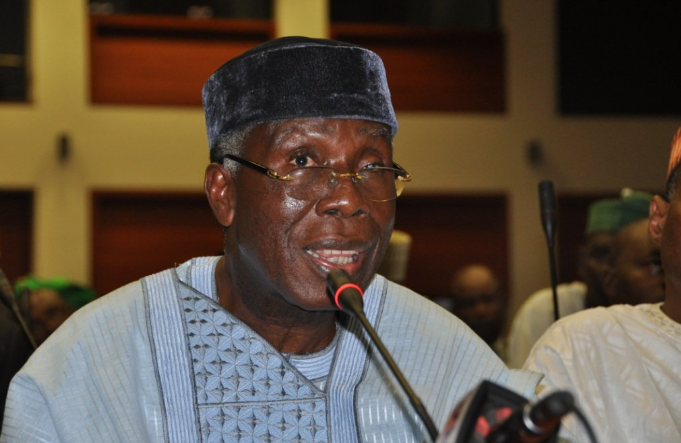
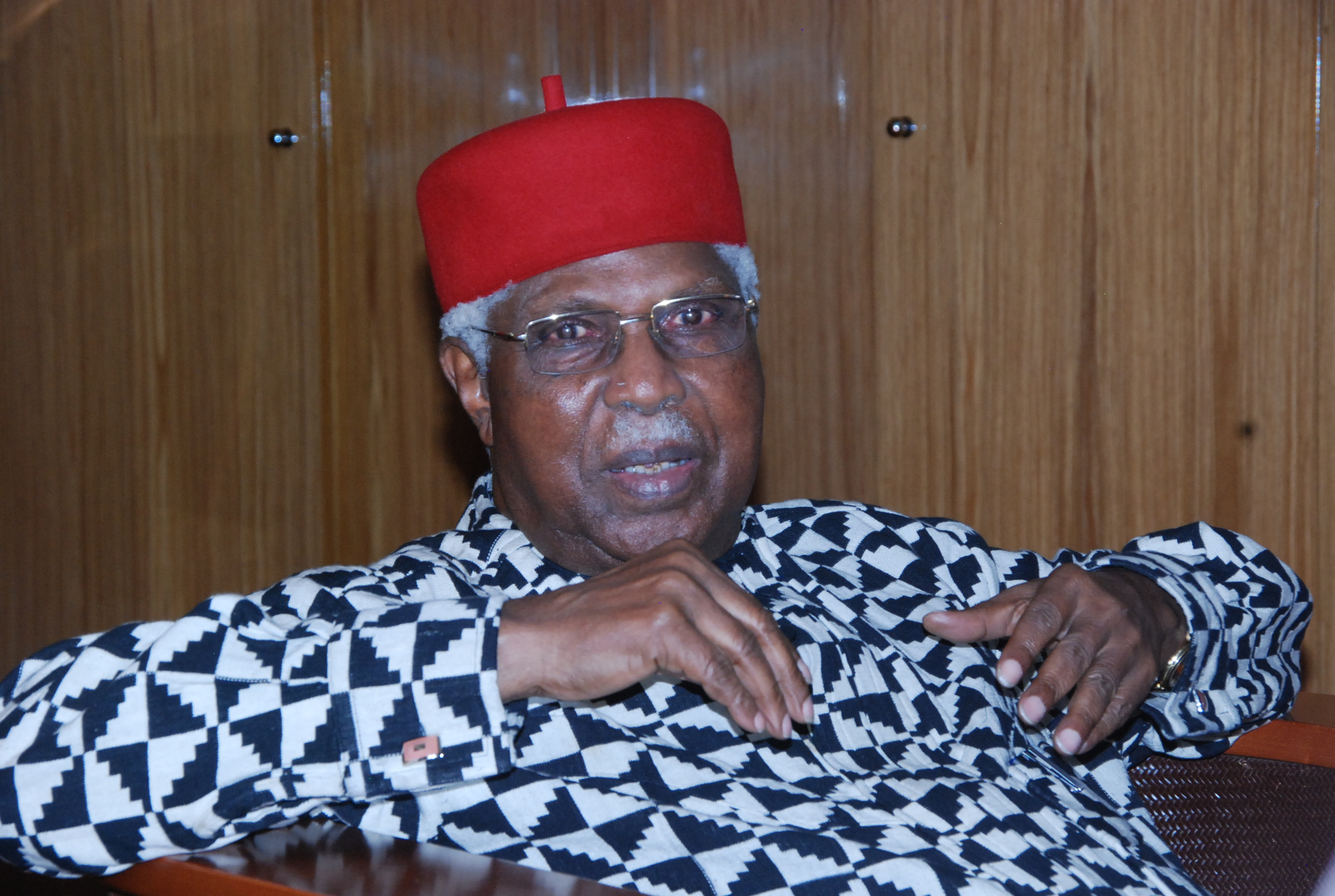
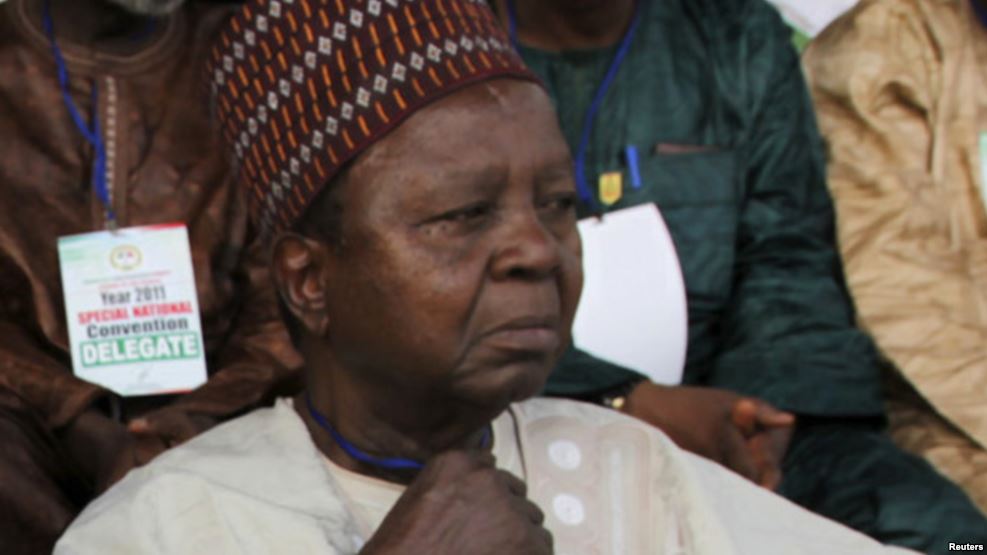
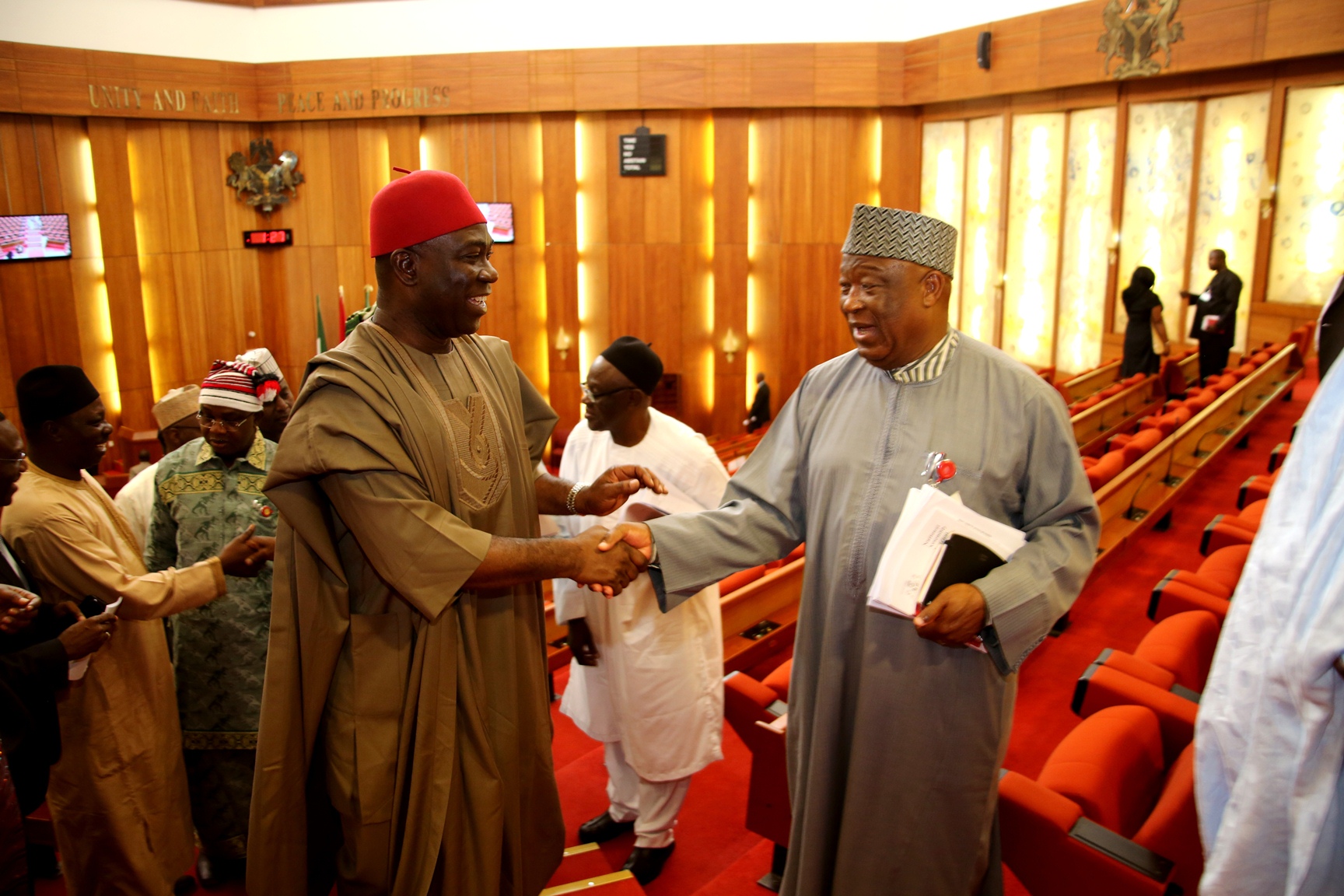

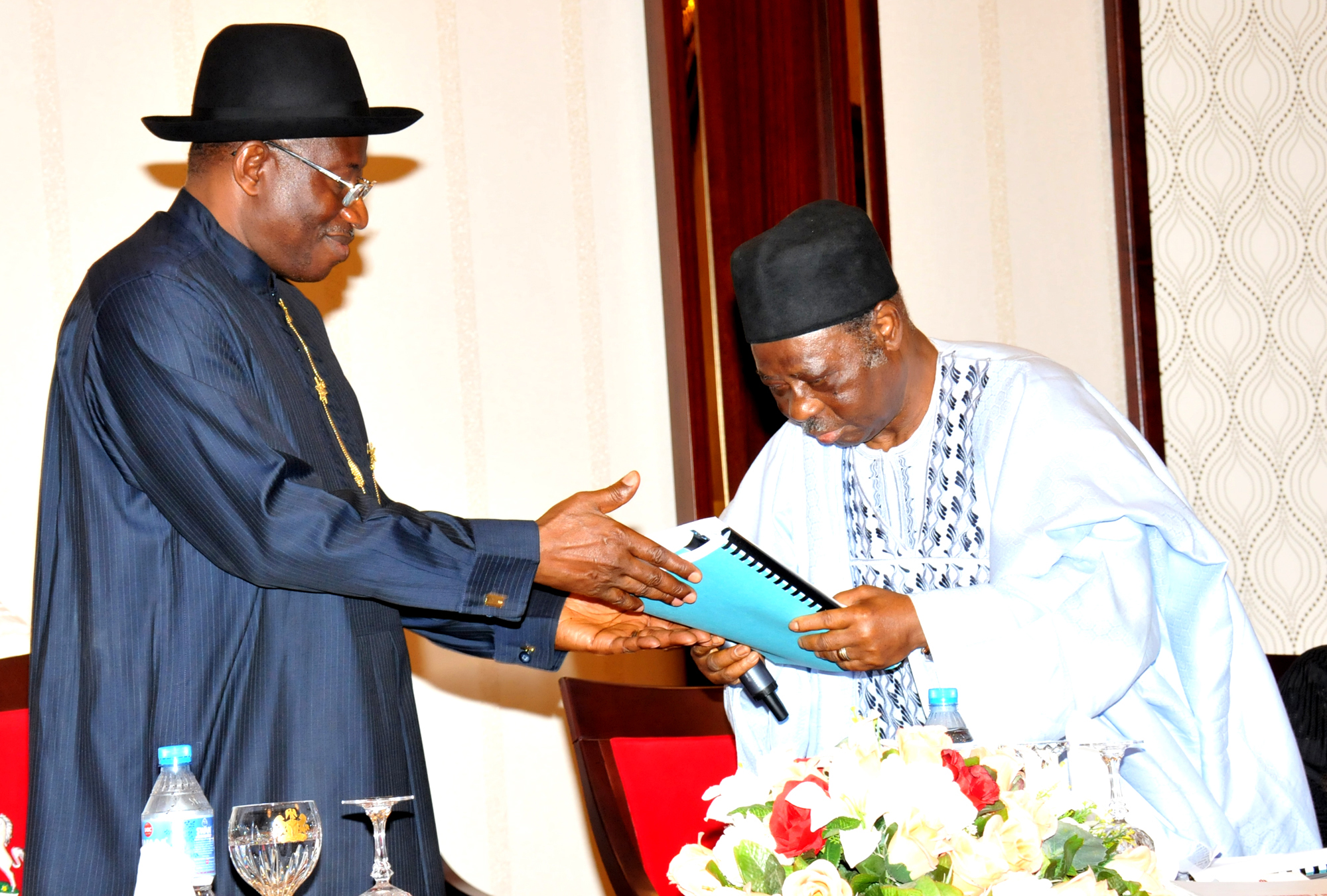
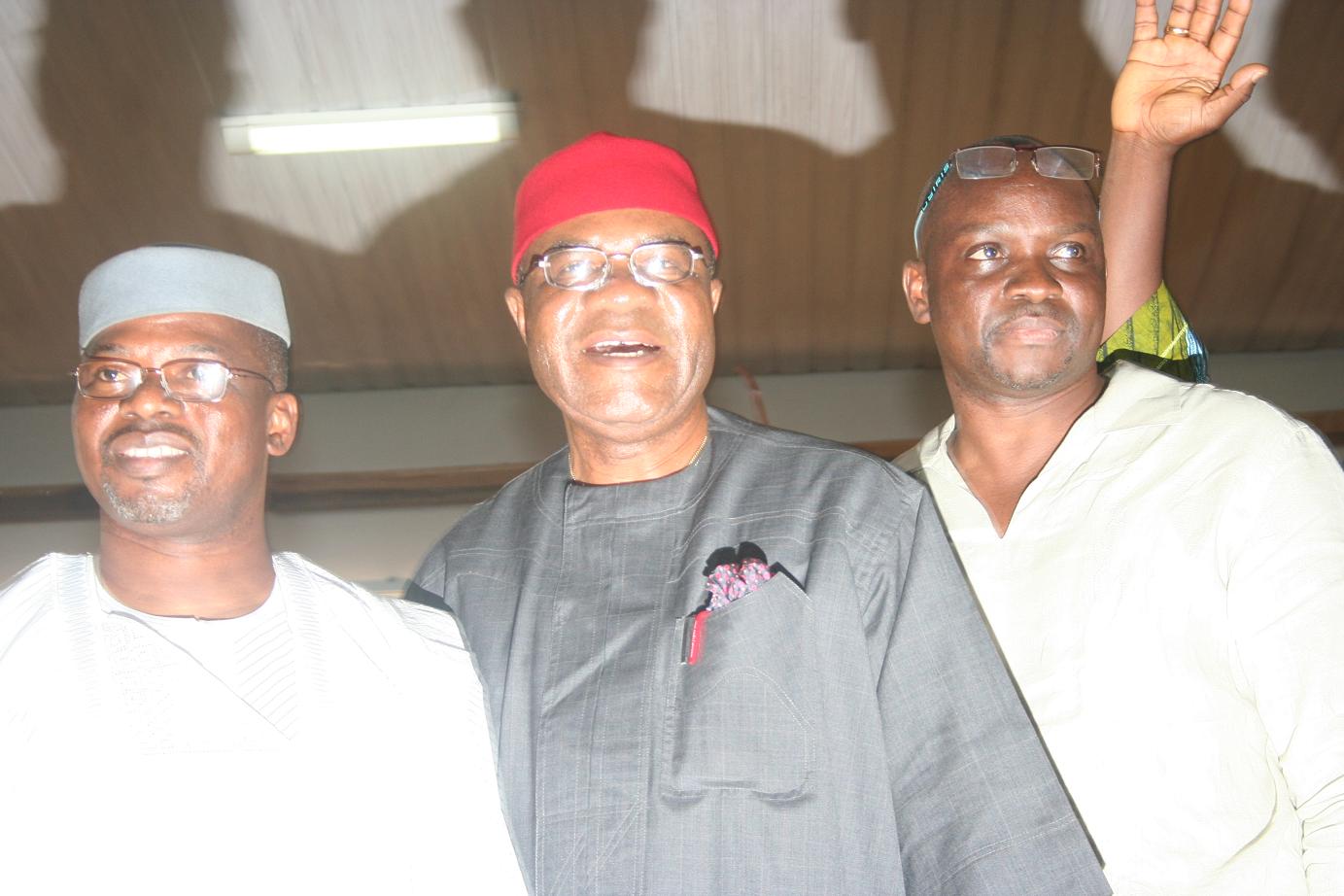
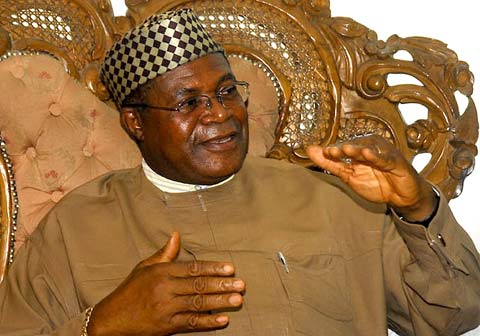
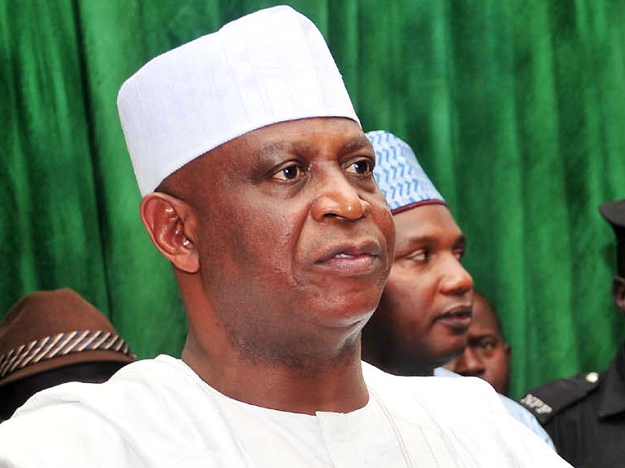
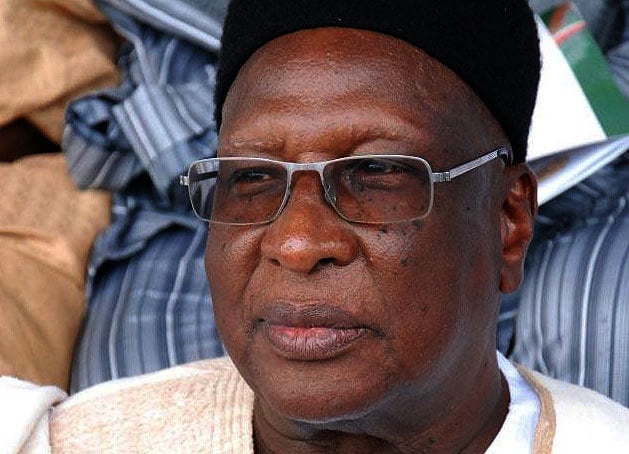
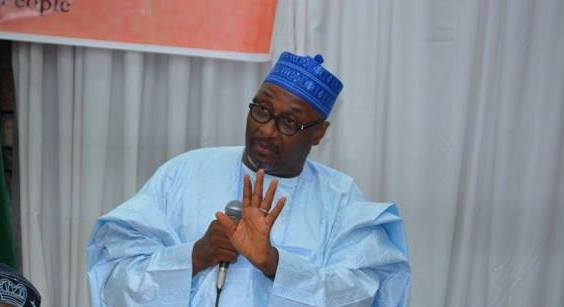
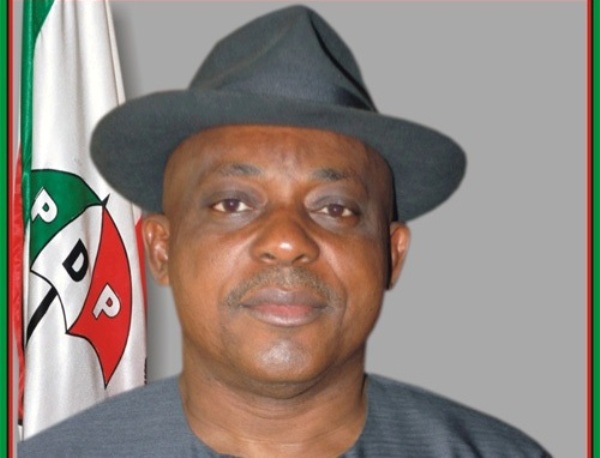

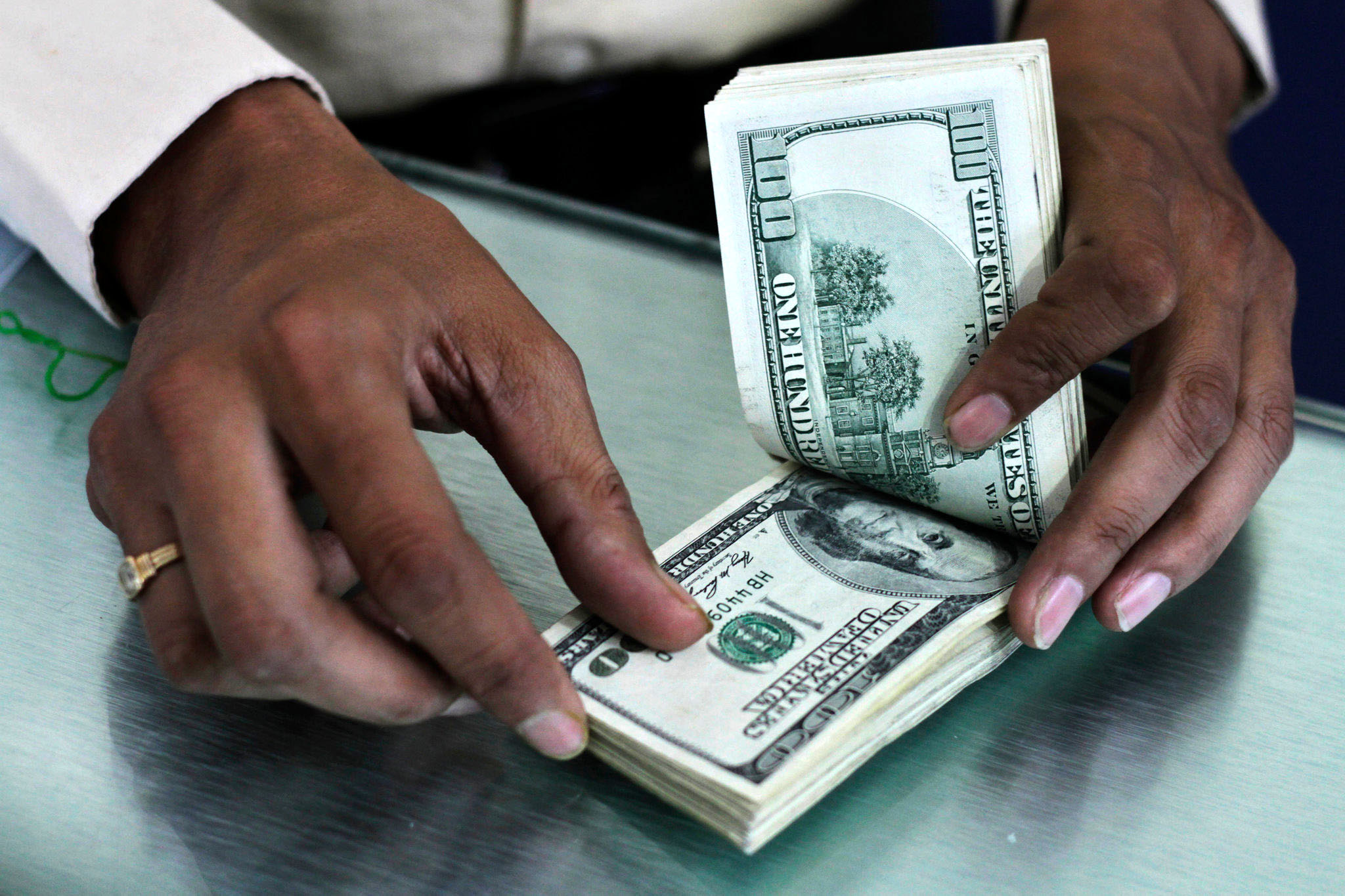
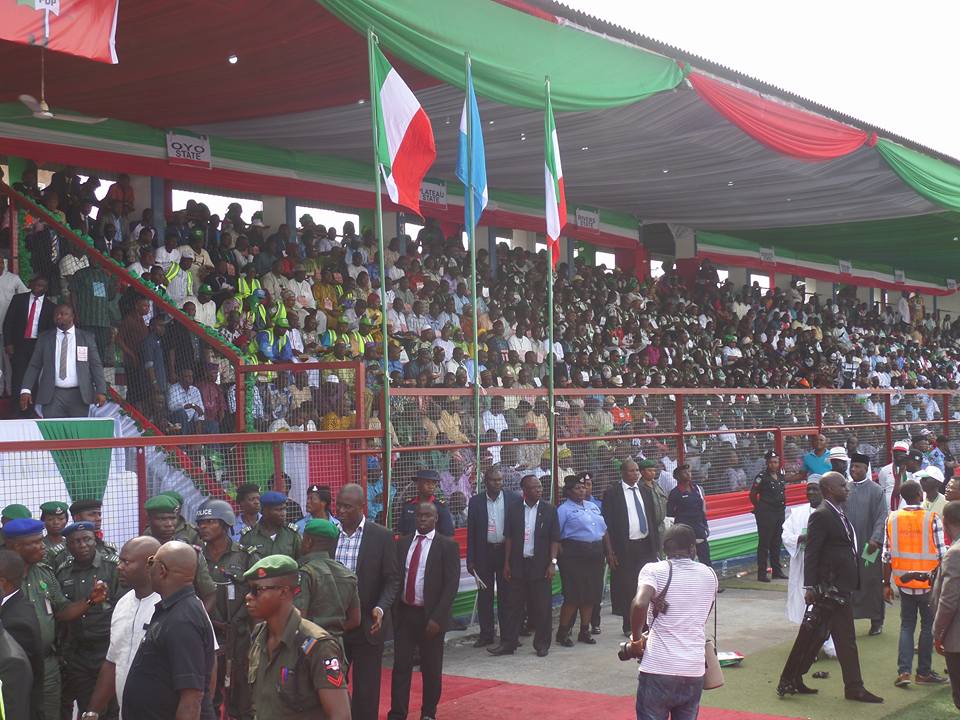
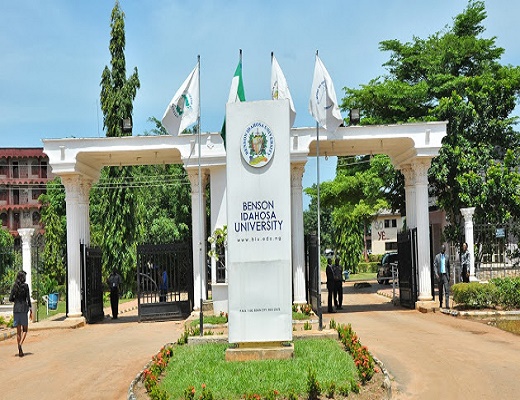
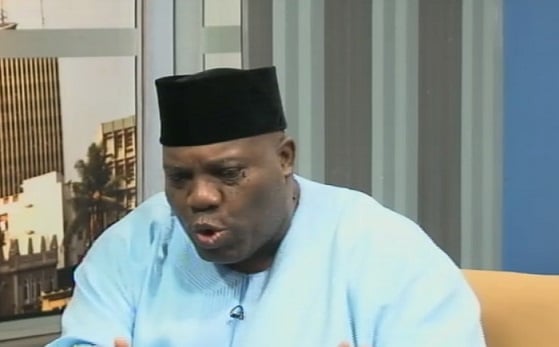

What a legion of so called leaders that destroyed Nigeria.